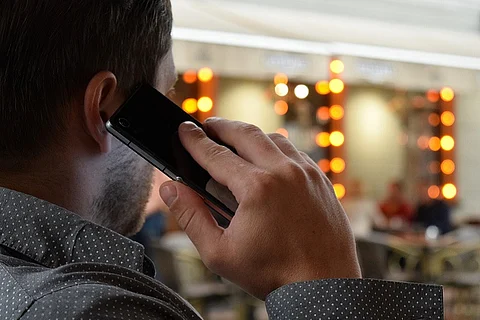

If you’re an Airtel or a Vodafone-Idea customer, your outgoing calls now will now ring for less time than they did earlier, thanks to a fight between the telecom operators and Jio. Now, whether you’re an Airtel, Vodafone-Idea or Jio customer, the ring time will only be for 25 seconds. The war among the operators began over call traffic. Airtel has reduced the ring time across its network, and Vodafone has reportedly cut it in certain circles. Here’s why:
All Telecom Service Providers have to pay a certain fee for calls made by people from one network, to whichever network their customer is calling — called the Interconnect Usage Charges (IUC). These charges are paid per minute, and from 2017 onwards, this charge was Rs 0.06 per minute. Therefore, companies that have more incoming calls than outgoing calls benefit. This figure of Rs 0.06 per minute is decided by the regulator, the Telecom Regulatory Authority of India (TRAI).
The reason that IUC was necessary was that telcos invested large amounts in laying the network across the country. When TRAI made the figure of Rs 0.06/min, Jio was still a new player, and a lot of calls would still go to Airtel and Vodafone-Idea. It had decided to phase this amount out by 2020 with the assumption that by then, outgoing and incoming calls would even themselves out, which is currently not the case.
Up until now, the standard time to keep the phone ringing was 45 seconds. However, there is no regulation on how long the ring time should be. IUCs were to be phased out from January 2020, but TRAI then put out a consultation paper, to see if there was a need to defer this date. After TRAI received information that one operator has reduced the duration of the ring to 20 seconds in its network for releasing the unanswered calls forcefully, TRAI issued a discussion paper on what the ideal call ringing time should be.
Airtel and Vodafone-Idea alleged that Jio was tricking the IUC by reducing the outgoing call ringing time to 20 seconds, but Jio said all calls including on net and off net in Jio have a call ringing time of 20 seconds. Jio further alleged that Airtel and Vodafone-Idea have a ringing time of 30 seconds as opposed to their claim of 45 seconds.
However, Jio, reportedly, just recently increased its ring time to 25 seconds. Earlier, it used to be 20. Airtel then wrote to TRAI and warned that it too would have to cut its ring time to 20 seconds.
Deferring the date of phasing out the IUC from January 2020 benefits Airtel and Vodafone Idea, who both currently have more incoming calls than outgoing. Jio has the most outgoing calls and hence would have to pay more.
“At present, there is a net outgo of calls from Jio to incumbent networks. If this IUC of six paise is retained a bit longer, it will offer incumbents some relief. This relief is due to them (Bharti Airtel and Vodafone Idea) as these companies acquired customers at a very high cost earlier," Mahesh Uppal, director at communications consulting firm ComFirst India, told Mint.
According to PTI, a letter that Airtel sent TRAI stated that despite repeated requests, since the regulator did not direct Jio not to increase its ring time or issue a general direction, they were forced to reduce their ring time as well. Airtel added that a lower ring time would lead to more missed calls and lower quality of service.
The report added that Airtel told TRAI that more missed calls mean that a customer would call back, and this would affect customer experience. It further added that Jio was "gaming the IUC payouts by converting these outgoing calls to incoming calls, which is ultimately causing a huge loss of revenue to Airtel.”
The same argument was made by Airtel earlier, which Jio denied and said that 15-20 seconds was the globally accepted norm for ring time.
Jio also said that the other operators charge their 2G/3G customers higher voice tariffs, due to which these customers give missed calls to Jio users. This, in turn, leads to these other operators making money, Jio argued. Jio only offers 4G services and offers unlimited free calls.
However, TRAI has told the telcos to sort this one out and is reportedly planning a discussion on the same on October 14.